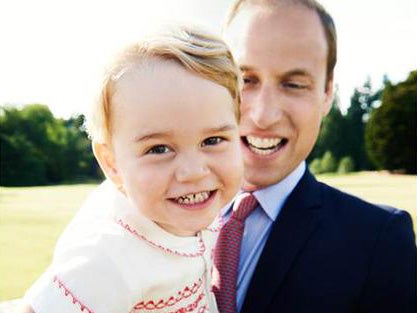BBC journalist wins £50,000 payout after not prioritising story on Prince George's birth
The long-time Sri Lankan journalist partly did not prioritise the royal birth story because it clashed with the 30th anniversary of Black July – a shocking period of violence against the Tamil people in Sri Lanka

Your support helps us to tell the story
From reproductive rights to climate change to Big Tech, The Independent is on the ground when the story is developing. Whether it's investigating the financials of Elon Musk's pro-Trump PAC or producing our latest documentary, 'The A Word', which shines a light on the American women fighting for reproductive rights, we know how important it is to parse out the facts from the messaging.
At such a critical moment in US history, we need reporters on the ground. Your donation allows us to keep sending journalists to speak to both sides of the story.
The Independent is trusted by Americans across the entire political spectrum. And unlike many other quality news outlets, we choose not to lock Americans out of our reporting and analysis with paywalls. We believe quality journalism should be available to everyone, paid for by those who can afford it.
Your support makes all the difference.A BBC journalist has secured a £50,000 payout for being sacked after prioritising a story about Sri Lanka over the birth of Prince George.
Chandana Keerthi Bandara, 57, lost his job as a producer on a BBC Sri Lankan news service in August 2014 and subsequently sued the BBC for unfair dismissal and race discrimination.
The employment tribunal found that the dismissal of Mr Bandara, who had been a senior producer on the Sinhala Service since 2000 and worked at the BBC for a total of 18 years, was unfair but in no way discriminatory.
The journalist had been allocated to oversee the publishing of stories on 23 July 2013, the day after Prince George was born, but said he chose not to prioritise the royal birth story partially because it clashed with the 30th anniversary of Black July – a wave of anti-Tamil violence that led to thousands being killed in Sri Lanka.
According to The Telegraph, a tribunal was told Mr Bandara fought against management pressure to report on the story but finally gave in and the article was published online at 12.08pm. After disciplinary proceedings, he was found to have been guilty of gross misconduct and was given a final written warning.
He was sacked just over a year later on 15 August, 2014 after other allegations of misconduct were made, including making a derogatory reference to a fellow worker and shouting at others.
According to the paper, although the majority of these allegations were substantiated with evidence or partially proved, the tribunal ruled that the unfair final written warning dished out over the Prince George story played a significant role in the decision to dismiss him. In turn, the tribunal found the final written warning was too stringent a punishment for an employee with such a good record.
However, Mr Bandara did not win his claims of race discrimination. In the proceedings, he claimed he was unjustly targeted because of his strongly held convictions that the Tamil people had been persecuted by the Sinhala-dominant government. The majority of his team were said to be of Sinhalese and not Tamil origin.
A spokesperson for the BBC World Service told The Independent they were disappointed with the outcome of this unfair dismissal claim but could not specify why.
"The BBC takes disciplinary matters very seriously and we are disappointed with the outcome of this unfair dismissal claim," the spokesperson said. "We note that the tribunal reduced the compensation awarded to Mr Bandara by 75 per cent and we will review the full decision of the tribunal carefully when it is available."
Join our commenting forum
Join thought-provoking conversations, follow other Independent readers and see their replies
Comments